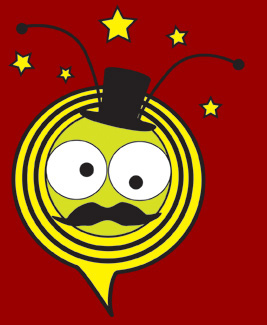
 D
DA grand comedy disguised as a weepy melodrama, Les Misérables hit very few right notes for me. The story of everyone's miserable lives in the nasty-ass world of 19th-century France, the movie slogs through a nearly completely sung (a term that should be used lightly when discussing some of the actors) 2 hours and 40 minutes. Not a character makes it through Les Misérables without their face stained with tears made of dirt and unhappiness. Speaking of stained faces, if you've ever thought, "I wonder what Hugh Jackman would look like in blackface made of poo," then go see this movie immediately.
Regarding the performances, which seem to be the point of movies like this, let's get the bad out of the way first. Russell Crowe strains his way through his lines, looking like he could not give less of a damn about what's going on with any of the characters in this movie, including his own. But he looks nice in that shade of blue they have him in. Really brings out his goatee. Amanda Seyfried sounds like a sheep who is quickly running out of air. Samantha Barks feels jarringly modern and succeeded in making me not care at all about Eponine.
Now for the better. Anne Hathaway, while some of her acting choices felt terribly stagy to me, did an admirable job with her big number, "I Dreamed a Dream." The choice was made for this song to sound ugly and raw and that worked far more for me than if they had made it pretty and belty. Anne Hathaway looks just terrible in this; good for her. While Hugh Jackman's singing voice didn't work for this music, he did manage to make me feel a little bit of sympathy for his character, which is more than I can say for anyone else. Except for maybe those unknowns playing Marius's young stud friends. They were quite good.
Les Misérables, even with its lengthy running time, rushes through character introductions so quickly that I felt I had no opportunity to care about any of them. Oh, Marius, you saw a cute chick and now you're madly in love and contemplating leaving your precious revolution behind to be a creeper and follow her through the country? Awesome yeah, that sounds plausible. You sound like a Muppet; stop making me giggle while you're singing about your dead friends.
4/10 Z
ZAt the end of the day, Les Misérables is pretty "très misérables". When it poses the question "Can you hear the people sing?", the answer may be difficult to come by, as to classify what Russell Crowe does as "singing" seems inaccurate, and the tight framing usually dictates that you probably cannot hear the "people" singing so much as a "person". The story of Les Misérables is pretty well known, but here's a quick run-down: A guy steals a loaf of bread and goes to a work camp where he pays his dues, leaves, and immediately turns around and steals a bunch of expensive stuff from a family that takes him in. He changes his name to secure a job, and is held in high esteem, at which point a guard that recognizes him from his time in the work camp threatens to rat him out. A girl loses her job, becomes a prostitute to support herself, and then dies of a disease that makes her cry a lot and hallucinate and forget to eat entirely. Then...other stuff happens. I haven't read the book, but as far as I'm concerned, it's the kind of contrived story that really works on the stage but not so much on the screen.
Having said all that... the movie does do a really nice job of telling the story, which is rather involved and hard to follow when on the stage. Although the selective focus tactic that Tom Hooper utilizes throughout the film takes away from the grandeur of the cast of what feels like thousands, it does make the story seem more personal, which is a daunting achievement. However, while the erection of a barricade may take our collective breath away when seen on the stage, in this film, the barricade resembles my apartment after a well-attended house party, and falls kind of flat. There are a lot of scenes that suffer a similar fate in this film.
Anne Hathaway is about to win an Oscar for playing the girl with the crying and the hallucinations and the dying, no surprises there. Russell Crowe is about to win a Razzie for playing a man singing in his bathroom mirror/the work camp guard. The most notable performance in the whole film, however, easily goes to Amanda Seyfried, who is fantastic in her role as a Vanilla Wafer.
Les Misérables has been made and remade so many times, it's a wonder this version exists at all. As a last minute substitution for reading the 200,000 page Victor Hugo novel, I'd probably go with the 1998 adaptation starring Liam Neeson, which keeps things a little more succinct. As a last minute substitution for a long form essay on the French Revolution, however...
5/10 B
BLes Misérables is a rare movie musical that feels grand and important and extremely well made. The story of Jean Valjean, a poor early nineteenth century Parisian man who rises from poverty and torture to become a gentleman who gives back to the unfairly treated, is a classic, intricate, and powerful portrayal of humanity during French revolution. Here, Tom Hooper delivers a remarkable film full of gorgeous sets, costumes, and camerawork and chilling vocal performances recorded live to enhance the emotional impact of the songs. The cinematography combines smooth sweeping shots of wide scale scenes alongside handheld-camera shaky action shots and short focus intimate character studies providing dynamism almost never achieved in movie musicals.
The emotional energy of the cast overall is a bit over the top, but this gives the piece a grand operatic quality engaging us more with the suffering of various characters. Though Anne Hathaway delivers a moving performance, she goes beyond over-the-top at times, particularly when she is on her deathbed. Hugh Jackman is perfect as Jean Valjean and ever so handsome. He demands our sympathy and is convincing as a truly benevolent man who is weary but strong and constantly afraid of failing others. Sacha Baron Cohen and Helena Bonham Carter are also perfect as they expertly balance comedy and villainy, subtlety and hammishness. On the other hand, Russell Crowe as Javert is slightly weak, particularly as his vocals tend to clash with the rest of the cast and are a bit nasal and scratchy.
This masterwork should sit nicely in history next to the great movie musicals of the 60s like My Fair Lady, The Sound of Music, and Funny Girl. This is a true return to the genre that goes further than Chicago or Moulin Rouge.
9/10
